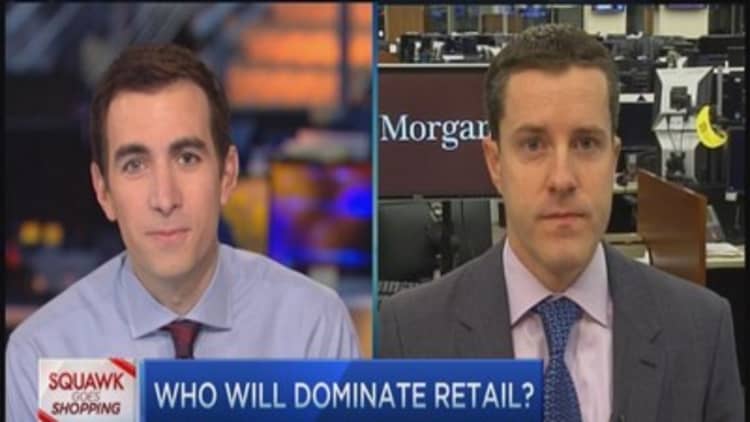Take a minute to picture the stereotypical luxury shopper.
What do you see?
If the vision of a 45-year-old, fur-clad woman immediately comes to mind, you're making the same mistake as many of the brands targeting high-end buyers.
According to a new study by Epsilon and the Luxury Institute, 57.5 percent of luxury spenders are actually male, and many are of Asian and Middle Eastern descent. But categorizing shoppers by their age, sex and net worth still isn't enough to get a real gauge on consumers who crave nice things.
Read MoreHigh-end shopper thrives while low-income survives
The report, which examined 30,000 high-end shoppers, found that luxury brands lose 50 percent of their top customers each year by not correctly identifying them, and thereby failing to create a personalized shopping experience.
According to the study, there are four distinct groups of luxury shoppers for brands to identify, which account not only for net worth, but purchase behavior. They are:
- "Aspirational" shoppers, who covet luxe brands, but don't necessarily have the means to purchase them on a regular basis;
- "Moments of wealth" shoppers, who save up for a certain item, but don't buy the brand frequently;
- "Dressed for the part" shoppers, who spend on high-end items to appear as if they live a luxury lifestyle, but may not have the wealth to be a true luxury spender, and
- "True luxe" shoppers, who can purchase luxury items whenever they want, without financial concern.
"Luxury brands need to truly understand who their customers are and what they are looking for in a luxe shopping experience," said Jean-Yves Sabot, vice president of retail business development at Epsilon. "This is critical in creating a personalized experience for the customer that drives engagement, retention and satisfaction."

It's not just existing customers who are at stake. Pam Danziger, president of Unity Marketing, said luxury brands' failure to identify potential customers could also discourage consumers who have the money to spend from visiting certain stores, because they feel as if they don't belong.
Read MoreShoppers set to splurge on this holiday gift
She said the reason many luxury brands aren't well-tuned into their customers is because the industry prides itself on dictating trends, instead of listening to what people want. But communicating with consumers could have some serious benefits.
A recent study conducted by the American Affluence Research Center and analyzed by Unity Marketing—which surveyed more than 300 consumers with a minimum net worth of $800,000—found that many wealthy shoppers consider certain luxury brands "overrated." Luxe mainstays Louis Vuitton, Gucci, Hermès, Prada and Rolex were at the top of the list.
Read MoreThe other wealth gap: 5 luxe brands outpace online
While some of that could be attributed to each label's designs, Danziger said the more consumers knew about a brand, the less likely they were to view it as "overrated."
"The takeaway very simply is that marketing communication aimed at educating the affluent about the luxury brand is very likely to create a positive feeling or halo around the brand, which may well lead to ... buying," according to Unity Marketing.


